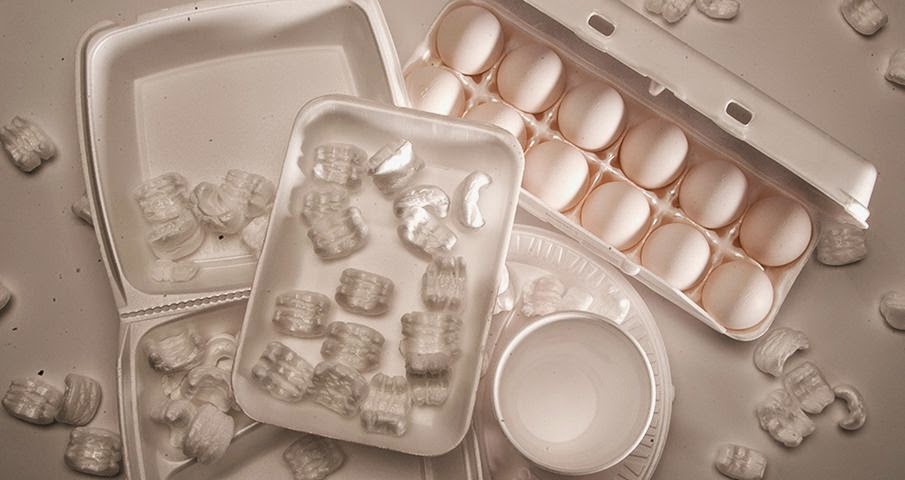I am now working on Tecnon OrbiChem’s Bio-Materials newsletter before next week’s American Cleaning Institute’s (ACI) annual meeting in Orlando so unfortunately blog posting will be a bit slow. I have recently interviewed somebody from GlycoSurf about rhamnolipids and Penford about the industrial starch market, which brought in several fascinating information that hopefully will be coming out on the blog.
In the meantime, let me post this news from my hometown about the ban on single-use expanded polystyrene (EPS) foam products in New York City starting July 1, 2015. The blog first posted about this ban proposal in June 2013 and my colleague at Tecnon OrbiChem wrote the ongoing challenges facing the styrene market.
According to the city’s De Blasio administration, food service establishments, stores and manufacturers will not be allowed to possess, sell or offer these EPS foam products including foamed cups, plates, trays, clamshell containers and polystyrene loose fill packaging such as packing peanuts by July 1. And here I just received a package containing these foamed peanuts (I actually find it annoying to clean up these foams that keep on clinging to my fingers…)
According to the city’s Department of Sanitation, these EPS foam is unrecyclable and that there is no market for post-consumer EPS collected in a curbside metal, glass, and plastic recycling program – hence the decision to ban them. NYC claims to be the largest city in the US to ban EPS foam.
The law allows businesses a six-month grace period from July 1 before fines can be imposed. For the first year of the ban, businesses will be given a warning in lieu of a fine. Non-profits and small businesses with less than $500,000 in revenue per year may apply for hardship exemptions from the Department of Small Business Services (SBS) if they can prove that the purchase of alternative products not composed of EPS would create undue financial hardships. SBS will begin accepting applications for waivers in March 2015.
The NYC Department of Education will begin replacing foam trays with compostable plates on May 1, and all school meals will be served on these compostable plates starting September. Summer meals will be served on compostable plates. I do wonder if these compostable plates include bioplastics. I need to contact my sources at NYC DOE…
According to city estimates, the Department of Sanitation collected 28,500 tons of EPS in fiscal year 2014, and approximately 90% is from single-use food service products like cups, trays and containers. Over 830,000 foam lunch trays are used every day in NYC schools alone (now that will be a boon for bioplastic alternatives).
EPS is already banned in other cities such as Washington D.C., Minneapolis, San Francisco, Oakland, Portland, Albany and Seattle.
According to the American Chemistry Council, the ban will miss an opportunity for the city to recycle foam packaging instead as most alternative foodservice packaging and foam protective packaging will continue to be sent to landfills instead of being recycled. The association noted that food-contaminated paper or cardboard and paper take-out containers with heavy wax or plastic coatings are not accepted for recycling in the city. These alternative foodservice packaging materials should be held to the same standard as foam packaging, according to the ACC. The organization also noted that alternatives to foam foodservice packaging typically are between two and five times more expensive.
 |
| Image from Crain’s New York Business |
Discussion
Comments are closed.